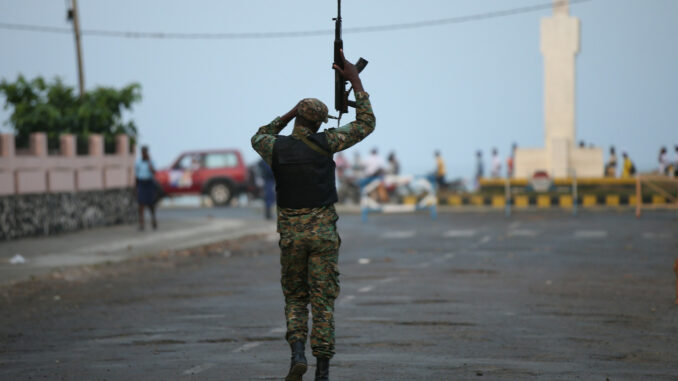
São Tomé and Príncipe, an archipelago in the Gulf of Guinea, is considered a model of parliamentary democracy in Africa. On last Friday, the Prime Minister announced that an attempted putsch had been foiled after an attack on Friday night, November 26, on the army headquarters. According to our information, at least five people were killed, including the leader of an opposition party and former coup leader, Arlécio Costa.
Since the aborted coup, dozens of people, both civilian and military, have reportedly been arrested.
The UN representative, Eric Overvest of the Netherlands, has called for calm and asked the authorities to ensure that São Tomé remains the good student it has always been in terms of democracy.
At the same time, the authorities continue to track down possible accomplices of the “Buffalo Battalion”, suspected by the government of being the author of the attempted putsch. This private security group, created in South Africa, was dissolved after the end of apartheid. Ex-mercenary of the “Buffalo Battalion” Arlécio Costa had participated in a coup attempt in São Tomé in July 2003 and had also been convicted of coup attempt in 2009.
On Friday, the security forces had chosen to incarcerate the prisoners inside the headquarters targeted by the attack. Finally, the authorities agreed to transfer them to the headquarters of the judicial police. Among them was the former president of the Assembly, Delfim Neves. His lawyer, Hamilton Vaz, says his client has not yet been questioned and is awaiting transfer to the court. According to him, the file is empty and the rights of Delfim Neves are violated since, as a deputy, he “should have immunity.
According to the Lusa news agency, an investigation has also been opened for murder and torture in order to clarify the circumstances in which the alleged coup plotters and the opponent Arlécio Costa died.
Justice, police, and forensic teams are mobilized in this troubled case, while images of detainees tied up and bearing marks of aggression have circulated on social networks.
This Saturday evening, the president of the ECCAS Commission, the Angolan Gilberto da Piedade Verissimo, and the UN representative in Central Africa, the Nigerian Abdou Abarry, arrived in the country.
